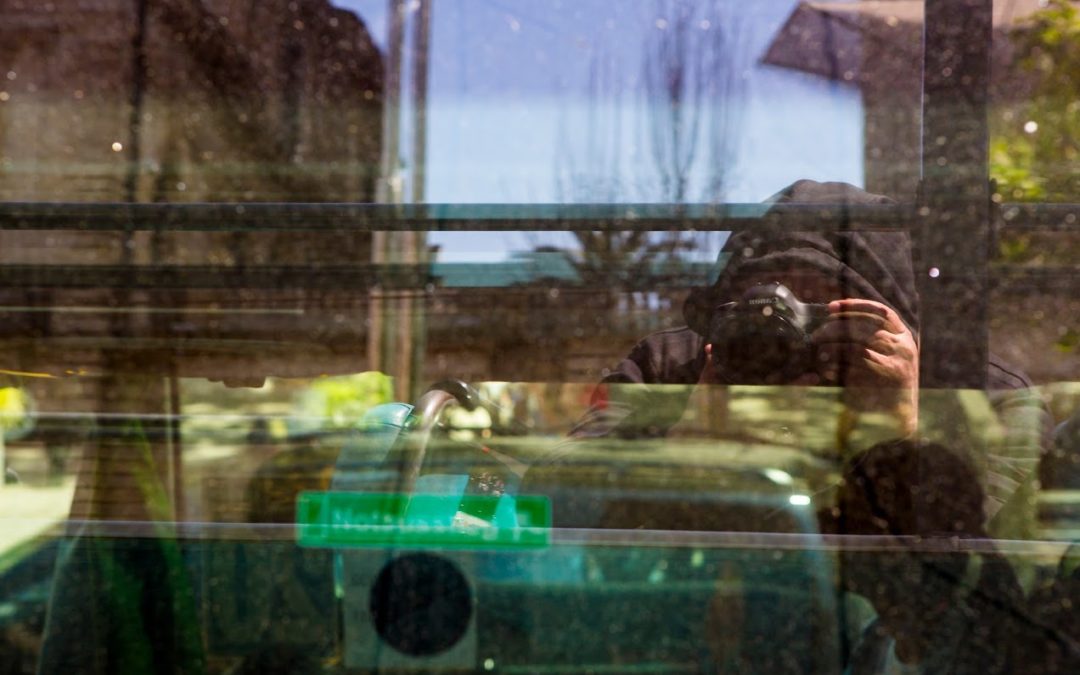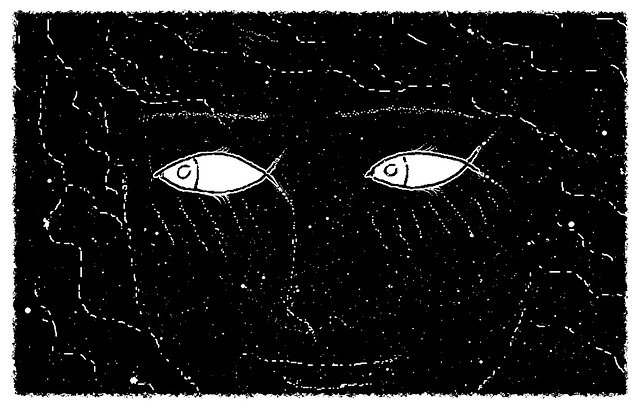© 2020 Teodora Rudolph
Photo credit Gerold Guggenbühl, https://www.730andmore.com/

Your focus of attention is a valuable resource on a par with time and money. Even better: while time and money are finite and outside you, your focus is entirely yours and within your command. There is even a saying: Don’t manage your time, manage your focus! Time management is entirely a matter of focus management. Isn’t this empowering?
What can you do to use the resource of your focus?
You can use your focus to examine and redefine goals!
Let’s take as an example a goal you have been pursuing, a job, a purchase or a diploma. What exactly have you been keeping your eyes on? The goal or what you think the goal would give you? Oftentimes, people get fixated on the object of their pursuit and lose sight of the benefits it promises, benefits that may well be easily within reach or already there in other ways. As it happens, the pursuit of the goal may destroy the very thing for the sake of which the person pursues the goal in the first place. For example, a hard-working man who gets so carried away with the idea of working hard to provide for the family that he ends up neglecting the family and losing it. Have you ever noticed that when people say they need A in order to be B, it is the other way round: they need B in order to have A because when they have B, A becomes a natural consequence of A or a non-issue? For example, somebody may think they need a job in order to have income, recognition and meaningful relationships. Let me ask you this: when you have income, recognition and meaningful relationships, is finding a job a problem? Likely not!
You can resolve problems you have been stuck on!
When you are stuck on a problem, chances are you have been too fixated on a perceived solution to the exclusion of other possibilities and this is how you created the problem in the first place. When you shift your focus away to a place or a time where the problem is not or cannot be, you are in the realm of the solutions. So, how about putting your focus of attention not on what is missing from your life right now, but on what you may have been missing all along! How? By shifting your focus away from where you have been keeping it. By shifting the focus to everything that is not that, by putting your focus anywhere but where it has been, you stop reinforcing the problem, its proportions change, it diminishes, resolves itself. The point I am making is that your ability to de-focus is just as valuable as the ability to focus! “What you focus on is what you get more of” is another popular saying. Focus on the problem, you reinforce it, de-focus from it, it diminishes. Both focusing and de-focusing can be trained.
Try this for yourself!
Let‘s take the idea of having a job! What is it a job can give you? I am guessing income is one of the top answers but is it the only one, or even the main one? Are you ready to do anything for a bit of money and how do you call such people who are? Do you want to be this kind of person? Who do you want to be or become instead? What are all the ways in which you already are this person? What are all the ways in which you can become this person? When you are this amazing person with an amazing life, is getting a job still a problem? Is it possible that this problem has resolved itself in the process of you becoming this amazing person?!
So de-focus from the problem and focus on becoming an amazing person instead because the solution is mostly a side-effect of you becoming and being an amazing person with an amazing life.
And most importantly, learn to budget your resources to serve you so that you achieve your goals for happiness and success.
© 2022 Teodora Rudolph
Photo credit Gerold Guggenbühl, https://www.730andmore.com/

Die Bezeichnungen “Hypnose” und “Trance” erwecken bei vielen negative Assoziationen. Ich werde auf die häufigsten negativen Mythen über Hypnose eingehen. Hypnose und Trance bezeichnen das selbe Phänomen, deshalbe werden in diesem Text beide Begriffe benützt.
Mythos 1. Hypnose als Schlaf
Wikipedia bezeichnet den hypnotische Zustand als “einen entspannten Wachzustand”. Hypnose ist eigentlich ein Zustand, in dem man hineingeht und die Aufmerksamkeit sogar mehr fokussiert, als man es normalerweise tun würde. Man kann körperlich tief entspannt sein und gleichzeitig geistig äusserst konzentriert. Milton Erickson, der legendäre Hypnotiseur bezeichnet die Hypnose als einen Lernzustand. In der Tat wird bei manchen Lernmethoden, im Fremdsprachenerwerb zum Beispiel, Hypnose eingesetzt. Also, Hypnose ist kein Schlaf.
Mythos 2. Hypnose als Fremdbestimmung und Geheimnisse herauslocken
Nein, niemand würde in Hypnose Dinge tun, die er im Normalzustand ablehnen würde. Die Selbsterhaltungsinstinkte sind dazu da, genau dies zu verhindern. Hypnose ist immer freiwillig. Schauhypnose ist genau das, ein Show. Wenn Hypnotiseure über übernatürliche Kräfte verfügten, hätten sie schon längst die Welt übernommen! Hypnose muss nicht immer so spektakulär verlaufen, wie in der Schauhypnose. Das Show wird gemacht, nur weil das Publikum das erwartet. Manche Hypnotherapeuten regen sich sogar über die Schauhypnose auf. Die Wahrheit ist jedoch, dass dank der Schauhypnose es überhaupt vielen bekannt ist, was Hypnose alles auch therapeutisch bewirken kann. In Ländern, in welchen es keine Schauhypnose gibt, gibt es auch keine Hypnotherapie, keiner hat eine Ahnung von Hypnose. Ein Beispiel dafür ist Südamerika.
Mythos 3. Hypnose als Gedächtnisverlust
Im Gegenteil, man kann im Hypnosezustand Erinnerungen zugänglich machen, die im Normalzustand nicht vorhanden oder verdrängt sind. Dies geschieht in dem man dem emotionalen Zustand, der gewisse Reaktionen auslöst, nachgeht und als Leitfaden zurück zum Ursprung der Emotion verfolgt. Der äusserst konzentrierte und nach innen gerichtete Fokus ermöglicht das.
Mythos 4. Man kann in Hypnose “Stecken bleiben”
Klares nein! Wenn die Trance nicht durch den Hypnotiseur beendet wird, geht die Hypnose nach einer Weile in ganz natürlichen Schlaf über, aus dem man nach höchstens 20-30 Minuten erfrischt und munter wieder von selbst erwacht.
Also, Hypnose ist kein Aus
geliefert-sein, kein Schlaf, kein Gedächtnisverlust und man kann sich darin nicht verlieren.
Was ist Hypnose denn?
Hypnose ist ein natürliches Phänomen. Jedes mal, wenn unsere Aufmerksamkeit fokussiert ist, sind wir in einem hypnotischen Zustand. Oft werden automatisierte Tätigkeiten wie Autofahren, oder vertiefte Zustände wie Lesen, als Trance- Zustände bezeichnet. Wir alle gehen mehrmals am Tag in Trance hinein und hinaus.
Da bietet sich die Frage: was kann man damit machen? Hypnose wird auch im Coaching eingesetzt. Überall und jederzeit, wenn man nach Ressourcen sucht, um etwas zu erreichen, kann Hypnose behilflich sein. Man kann Hypnose zur Überwindung unerwünschter Gewohnheiten einsetzen. Sogar zur Schmerzenslinderung, bietet sich Hypnose an. Ich habe vor kurzem Selbsthypnose verwendet um starke nach-operative Schmerzen ohne Morphin-Spritze zu überstehen.
Der Placeboeffekt
Es gibt viele Parallelen zwischen Hypnose und dem Placeboeffekt. Historisch gesehen entstehen die Begriffe um die gleiche Zeit, in den 70er Jahren des 18ten Jahrhunderts.
Wikipedia beschreibt den Placeboeffekt folgendermassen: “Placeboeffekte sind positive Veränderungen des subjektiven Befindens und von objektiv messbaren körperlichen Funktionen, die der symbolischen Bedeutung einer Behandlung zugeschrieben werden.”
Ist der Effekt echt oder nur Einbildung und spielt das letztendlich eine Rolle?
Wissenschaftliche Studien haben bewiesen, dass ein Placebo biochemische und physiologische Veränderungen im Körper hervorbringen kann. Besonders deutlich ist das zum Beispiel bei der Schmerzkontrolle. Bei allen neuen Medikamenten muss der Placeboeffekt ausgeschlossen werden, was die Pharmaindustrie viel Geld kostet. Der Effekt ist also unzweifelhaft vorhanden! Es gibt sogar Experimente mit simulierten chirurgischen Eingriffen, bei welchen die Patienten sich verbesserten obwohl keine Operation stattfand.
Eine der bedeutendsten Forschungsinstitutionen der Welt, Harvard, hat viel in die Erforschung des Placeboeffekts investiert. Dabei haben sie bei Versuchen aus rechtlichen und ethischen Gründen offen verkündet, dass Placebos verabreicht wurden. Das spielt sich ungefähr so ab: “Nimm das, es ist ein Placebo aber es wird dir trotzdem gut tun!” Also erfolgt eine Verbesserung selbst dann, wenn die Testperson weiss, dass sie ein Placebo erhält.
In den USA haben manche Ärzte sogar damit begonnen, für die Zulassung von reinen Placebopillen zu lobbyieren. Der Placeboeffekt soll also nicht mehr nur minimiert werden, sondern gezielt eingesetzt!
Was hat Placebo mit Hypnose zu tun? In einem gewissen Sinne sind Hypnose und Placebo ein und dasselbe. Man kann Placebo als hypnotischen Effekt sehen.
Viele von uns haben zum Beispiel den klassischen Wahlspruch “Everyday in every way I’m getting better and better” gehört. Er wurde vom französischen Apotheker Emile Coué anfangs des 20ten Jahrhunderts bei Patienten anstelle von Medikamente eingesetzt. Solche Devisen sind eigentlich Auto-Suggestionen und gehören somit bereits zum Bereich der Hypnose.
Das Prinzip, das sowohl dem Plazeboeffekt als auch der Hypnose zugrunde liegt, ist die Assoziation. Wikipedia erklärt die Assoziation folgendermassen:
“Der Begriff der Assoziation dient dabei zur Erklärung des Phänomens, dass zwei (oder mehr) ursprünglich isolierte psychische Inhalte (wie z. B. Wahrnehmungen, Gefühle oder Ideen), auch als Assoziationsglieder bezeichnet, eine so enge Verbindung eingehen, dass das Aufrufen eines Assoziationsgliedes das Auftreten eines oder mehrerer weiterer Assoziationsglieder nach sich zieht oder zumindest begünstigt. So werden zum Beispiel der Anblick einer Rose und der Duft einer Rose im Gedächtnis miteinander verbunden.”
Die klassische Konditionierung von Pavlovs Hund veranschaulicht diesen Zusammenhang. Zwei Dinge finden gleichzeitig statt und das Hirn erstellt eine Verbindung: X ist Y oder X bewirkt Y. In der Hypnose und NLP ist dieses Phänomen als Verankerung bekannt.
Dabei haben Erwartungen und Glaubenssätze enorme physiologische Wirkungen. Wohin der geistige Fokus geht, folgt der Körper.
Je mehr sich die Aufmerksamkeit auf eine bestimmte Erwartung richtet, desto mehr neuronale Verbindungen entstehen im Hirn und desto grösser ist die Wahrscheinlichkeit, dass die Erwartung eintritt. Allein der Akt der Einnahme von Pillen aktiviert die Erwartung, dass Pillen heilen. Dabei spielen kulturkreis-spezifische Assoziationen eine wichtige Rolle, zum Beispiel: dass grössere Pillen grössere Wirkungen als kleine Pillen haben oder, dass teure Medikamente wirksamer als billige sind. Rot wird bei uns als energiereich empfunden, Blau hingegen als beruhigend. Interessanterweise erweisen sich in der Schmerzkontrolle rote Pillen als wirksamer als blaue. In der Behandlung von Angstzuständen hingegen ist es umgekehrt. In Italien jedoch nicht, dort sind die Farbassoziationen anders: Blau ist die Farbe der “Forza” und blau-gefärbte Schmerzpillen sind in Italien wirksamer als rote!
Interessant, nicht wahr? Buchen Sie eine Sitzung mit mir um mehr zu erfahren!

Es war einmal ein Psychologieprofessor, der während eines Vortrags ein Glas Wasser erhob und anstelle der erwarteten Frage “Ist das Glas halb leer oder halb voll?”, fragte: “Wie schwer ist dieses Glas?“
Er antwortete sich selbst: “Aus meiner Sicht spielt das absolute Gewicht dieses Glases keine Rolle. Es kommt darauf an, wie lange ich es halte. Wenn ich es für eine oder zwei Minuten halte, ist es ziemlich leicht. Wenn ich es eine Stunde lang halte, wird mein Arm sich verkrampfen und sich völlig taub und gelähmt fühlen. Es einen Tag lang zu halten, wäre unmöglich.
Das Gewicht des Glases ändert sich nicht, aber je länger ich es halte, desto schwerer fühlt es sich für mich an.”

Have you ever noticed how, often, when we say “I need X in order to have Y”, it is the other way round: how you need Y in order to have X or how if you had Y, X would be a natural consequence of Y?
For example, you may want to increase your professional success and earn more money (X) in order to have a higher self-esteem (Y). How about considering how much better you would be as a professional if you increased your self-esteem first? What if performing better and earning more monetary rewards turned out to be a direct consequence of having a higher self-esteem? So considering what everything is that makes up your self-esteem may lead you to answers such as competence, confidence, improving your physical condition or taking care of interests so that if you had more of these, you would have more self-esteem that would enable you to perform better and earn more money. Do you see how the equation is reversed and Y is the key to X, not the other way round?
Or another example: many banks declare nowadays “We need a strong wealth management in order to have a strong international private banking” and lock in their resources into this perceived solution. How about asking: what is everything else besides wealth management that makes for a strong international private banking? That’s right! A strong wealth management may actually be a direct result of a strong international private banking and not the other way round. So, considering what everything else is that is necessary for a strong international private banking may create the very conditions needed for a strong wealth management, how about that?
Problems have a way of locking in the focus of attention and ironically, so do solutions! As the saying goes, the solution is the problem. Fixing your focus on one perceived solution may well be the very same thing that keeps you stuck by locking in your resources and thus keeping in place the problem you are attempting to solve.
Unlocking your focus is therefore crucial and, may well be all you need in order to solve a problem!
There are times to focus and there are times to de-focus. I can help you learn the difference using state of the art tools backed by neuroscience research.
Book a session now!
© 2021 Teodora Rudolph

Scheherazade ist die Erzählerin der morgenländischen Geschichten von Tausendundeiner Nacht. Jede Nacht erzählt sie dem König, der sie am nächsten Morgen töten lassen will, eine Geschichte. Sie erzählt und erzählt, am Morgen ist die Geschichte jedoch immer noch nicht zu Ende. Neugierig auf die Fortsetzung, lässt der König Schecherezade am Leben. Dieses Spiel geht 1001 Nacht so weiter. Am Ende sieht der König davon ab, sie umzubringen. Was geht hier vor? Es ist der Zeigarnik-Effekt im Spiel!
Der Zeigarnik-Effekt ist ein psychologischer Effekt über unser Erinnerungsvermögen. Es geht um den Gegensatz zwischen abgeschlossenen und unterbrochenen Dingen. Man erinnert sich an unterbrochene, unerledigte Aufgaben besser als an abgeschlossene. Eine angefangene Sache baut eine Spannung der Aufmerksamkeit auf, die dann mit dem Abschluss abgebaut wird. Bei einer Unterbrechung bleibt die Spannung erhalten. Die Aufgabe bleibt im Gedächtnis. Und, interessanterweise, ist dieser Effekt auch in der Arbeitspsychologie am Werk. Unterbrochene Aufgaben benötigen gesamthaft manchmal weniger Zeit als Aufgaben, die an einem Stück erledigt werden. Interessant, nicht wahr!? Wer kennt den Spruch nicht „Ich schlafe darüber“ und tatsächlich ergibt sich am nächsten Tag ist eine Lösung!
Warum ist das für Redner und Geschichtenerzähler interessant zu wissen? Weil wir unsere Reden und Geschichten auf ähnliche Weise spannender machen können! Da kommt der Begriff „Verschachtelte Schleifen“ zum Zug, auf Englisch „Nested Loops“. Die Bezeichnung wurde aus der Informatik entlehnt. Das sind bewusst eingelegte Unterbrüchen in der Erzählung. Das geht so: man beginnt mit einer Geschichte, oder einem Thema, unterbricht sie jedoch auf dem Höhepunkt, man beginnt eine zweite Geschichte, unterbricht sie auf dem Höhepunkt, beginnt eine dritte Geschichte und unterbricht auch diese auf dem Höhepunkt. In diesem Moment ist die Aufmerksamkeit der Zuhörer so zugespitzt, dass hier die beste Stelle ist, die zentrale Aussage zu machen. Sei es einen Aufruf zur Handlung, oder einen prägnanten Spruch mit welchem ein Vorgesetzter seine Mitarbeiter motivieren will, das ist der Moment, dies zu tun!
Es ist nämlich ein Grundgesetz der Kommunikation, dass es weniger wichtig ist, was gesagt wird, sondern viel wichtiger ist es, was beim Zuhörer ankommt. Eltern von Teenagern können dies bestätigen. Die verschachtelten Schleifen sind also eine gute Methode, Inhalte dynamisch und spannend zu präsentieren in dem die Spannung geschickt aufgebaut und die Aufmerskamkeit des Zuhörers zugespitzt wird.
Und dahinter ist die Wirkung des Zeigarnik-Effekts! Und das ist auch, was Scheherezade das Leben rettete!
Haben Sie also den Mut Unterbrüche zu machen und verschachtelte Schleifen in Ihre Reden einzubauen! Das geht elegant mit Einführungen wie „Oh, dass erinnert mich an etwas Anderes“. Ihre Geschichten werden dadurch nur spannender werden!
Viel Spass beim experimentieren!
© 2021 Teodora Rudolph

The buzz of mindfulness has been going around for some time. Companies and schools are picking it up and installing mindfulness programs. There are some benefits to practicing mindfulness indeed, but they seem to be hugely overrated. Contrary to bold claims that it increases happiness, there is no reliable research to back this. While mindfulness meditations do bring some benefits to clinically depressed patients, there is no big evidence it brings happiness to ordinary people.
Mindfulness is not supposed to add to your stress!
Mindfulness meditations seem to be a good gateway to some good things, such as stress relief, but only provided you do it in a way that does not actually add to your stress. If you find yourself questioning whether you are doing your mindfulness meditation correctly, you are adding to your agitation rather than reducing it. If, on the other hand, you approach it like an accomplishment thinking how great you are for doing it, you are reinforcing narcissistic and self-consciousness tendencies that are the very thing mindfulness is supposed to relieve you from. Straining to be mindful and patting yourself on the back for doing so defeats the purpose.
Mindfulness is often associated with focus and concentration
And indeed, there is big value in being able to command one’s focus of attention among all the information noise we are flooded with. Training to fully focus on something at hand like your breath, as mindfulness teaches, is a good training wheel but why stop there? Why not let it go to better and nicer things? What better and nicer things, you may ask? How about how you will be being and feeling once you have resolved your problems? Your brain is a lovely time- and distance travel-machine, why not use it?
Mindfulness is supposed to be about the present moment
What exactly are the benefits of the present moment? When I focus on the present moment to the exclusion of everything else, I feel like I am depriving myself of one of the advantages of human cognition: the ability to hold past and present and future simultaneously. Having a concept of the future is one of the things that are unique to humans as compared to animals. Animals don‘t plan for future; as for the past, judging by how quickly an animal can recover from a near-death encounter with a predator and within minutes calmly graze grass again, shows that the past has no big grip on animals either. Animals are fully in the now but why should we strive for that?
To be fair, our lives are often much more fulfilling lived outside the present than in it. After all, where are you visions and goals if not in the future? And how do you build on your experiences and learnings if you are not able to hold the past against the future and compare alternative scenarios? Why shun automated actions and autopilot activities when they are in fact shortcuts to this kind of freedom of the mind that lets it go anywhere? Why banish this kind of journeys to focus on your breath?
Good things feel good
Finally, does mindfulness feel good? Because good things do. Practices that slows down your heartbeat feel relaxing. If focusing on your breath slows you down, it is a good gateway to relaxation. But then, to some, me included, putting the body through some stress by doing physical exercises is more relaxing to both my body and mind than putting my mind on my breath. Your muscles feel more relaxed after you have tensed them than if you have not.
What is important is taking time to do things that feel good. And who is to say how this is best done? It may be a leisurely walk, it can be a nap. Somebody else’s recipes may not work for you. It is a great idea for companies and schools to schedule leisure time but mandating how is is to be spent may have the opposite effect. If mindfulness is about being mindful to your own needs, I am all for it! Do it your own way!
© 2020 Teodora Rudolph
Photo credit Gerold Guggenbühl, https://www.730andmore.com/
Recent Comments